Mein Weg nach Deutschland - A New App that helps you learn German.
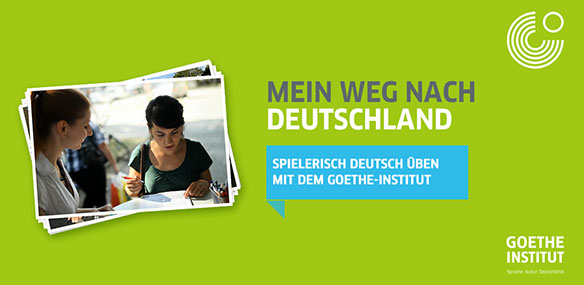
We are happy to announce the launch of a new app for the Goethe-Institut. The app “Mein Weg nach Deutschland” (My Journey to Germany) complements the corresponding web project of Goethe-Institut. Since 2013 it has given orientation and important information to those who have lately come to Germany. It offers lessons based on everyday situations on Level A1 to practice German. The app consists of 8 training sets made up of 49 individual exercises altogether. Now available for iOS and Android in the respective app stores.
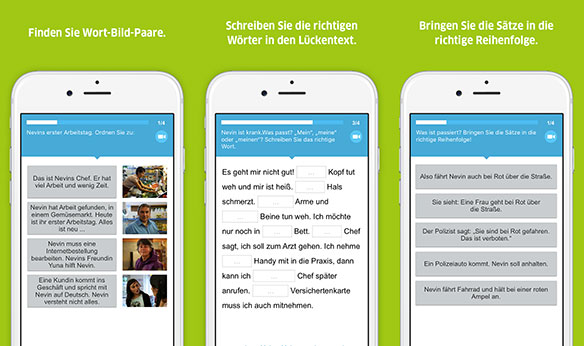
Here is the official release text:
How do I sign a contract? How do I make friends in Germany? The young woman named Nevin faces these and other problems in her first weeks in Germany. Share her experiences in short videos (A1-level) and exercises to improve your German.
 
bavarikon3D 2.0 - The Mega Update
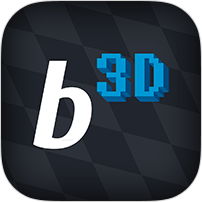 Version 2.0 of the bavarikon3D App was hardly modified externally, but internally its all brand-new. Version 2.0 of the bavarikon3D App was hardly modified externally, but internally its all brand-new.
The bavarikon3d app is a product of the digital culture portal bavarikon. Serving as the gateway to arts, culture and history of the Free State of Bavaria, bavarikon features treasures in arts, culture and history. We developed this app on behalf of our client Bavarian State Library, which is responsible for the technical development, administration and editorial management of bavarikon.
The new version features more than 50 3D objects. All objects are now rendered with high-res 4K textures, resulting in a much more detailed and crisper view. The app was completely overhauled. Now it is displayed optimally on all devices ranging from iPhone 5’s 4” to iPad Pro’s 12.9“ screen.
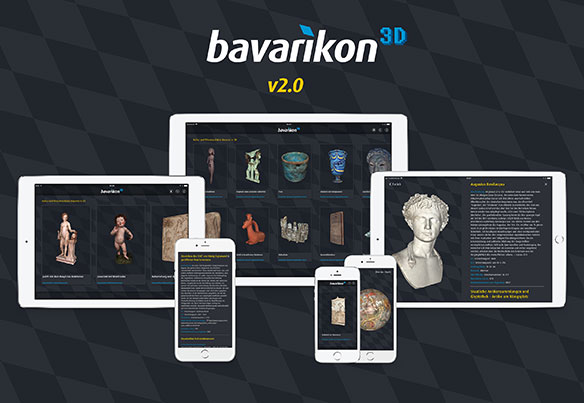
By exchanging the OpenGL Rendering Engine we were able to reduce the loading time and at the same time to improve the display quality of the 3D objects. Design and user experience were optimised and adjusted to the requirements of current developments, f.e. iOS 11.

Sois le bienvenu Canada! – German Traces now also available for Canada!
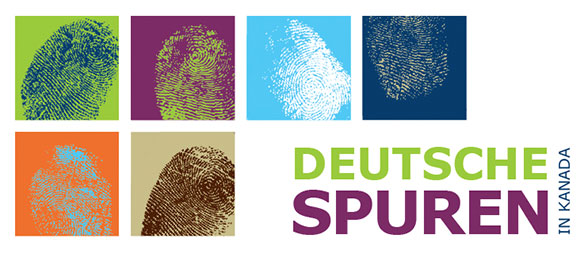
Did you know, that there are many places in Canada that are linked to Germany? Have you ever wondered why Kitchener hosts an Oktoberfest every year? Or, what New Brunswick has to do with the city of Brunswick in Germany? Often, German immigrants and their descendants have played an important role in the development of this country. The influence can be seen in some names of cities and villages, in architecture, in the fields of economy and politics, as well as in the arts. People like Gerhard Herzberg or Elisabeth Mann Borgese left their mark in the scientific field.
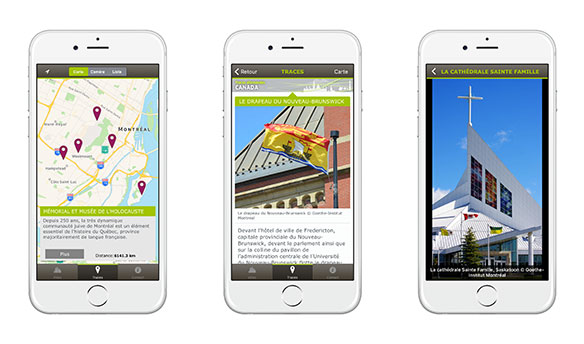
At the time of the British Conquest of New France, nearly 200 families living in the St. Lawrence Valley were of German origin. According to the 2016 Canadian Census, over 3 Million Canadians have German roots and 430,000 people in the country reported German as their mother tongue.
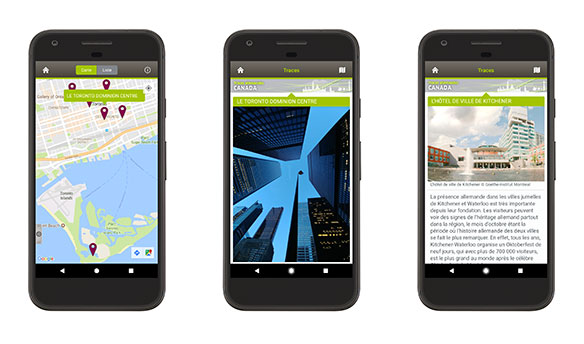
Discover Canada from a new perspective and join us on a multimedial track search!
This is all made possible by German Traces app of Goethe-Institut which now also contains a pack of traces in Canada. Along with the Canada update the app has literally acquired another language: French was lately added to the existing system languages German, English, Portuguese, Hebrew, Slovakian, Swedish, Greek, Latvian and Ukrainian.
 
Mobile Trends from #mtc17
MobileTech Conference recently posted the video of Markus’ Mobile Trends Talk. The talk was recorded in March, not that brand-new – a fact that can turn out to be fatal, especially when covering a topic like this. But find out for yourself, where he was on the right track, and where not. In sum, we think that he did quite well.
Coming Up Next: CFCamp
 Again we will be sponsors of and speakers at this year’s CFCamp in Munich. Again we will be sponsors of and speakers at this year’s CFCamp in Munich.
How to migrate 400,000 webpages with ColdFusion - An Adventure Tale.
Thursday, 19.10.2017 | 13:20 - 14:10 | Track 1
Goethe-Institut, the cultural institute representing the Federal Republic of Germany internationally, had to renew almost all of their software infrastructure that powers their web activities worldwide. Almost all components from the Content-Management System to the internal search engine had been reviewed and renewed.
We're talking about 300 websites covering 98 countries in 64 languages, maintained by 700 content editors from all over the world. All in all the impressive amount of 400.000 static webpages as well as a couple of web applications. We'd like to give you an inside look behind the scenes, show strategies how to survive such a project, and give away some lessons learned.
We'll also look at the landscape how it looks today, including a MariaDB cluster, dedicated mobile applications, an Akamai CDN and a couple of new highly complex dynamic application including a social network for 500.000 users. And - you already guessed it - it's all done with ColdFusion.
So join us for an one hour rollercoaster ride through 5 years of enterprise level ColdFusion webdevelopment. |
Markus had held this talk already, together with Goethe-Institut's Jonathan Winter at Webinale this summer. Now they take a rerun in English with more focus on the technical side.
 https://www.cfcamp.org/sessions/mega-migration-talk.html https://www.cfcamp.org/sessions/mega-migration-talk.html
BSB Navigator - Now Available for Android
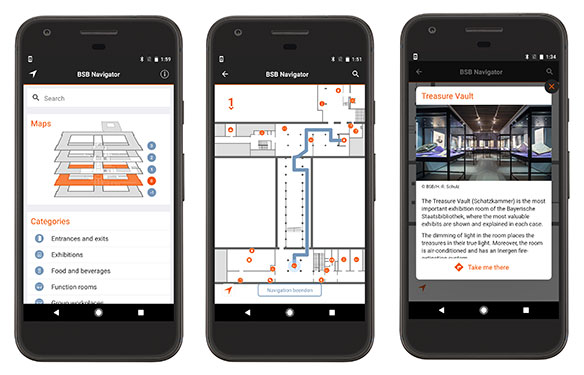
After the successful launch of the iOS indoor navigation app BSB Navigator by the Bavarian State Library, we proudly present the app’s Android version. It runs on all Android Smartphones with Android 4.3 and higher, which have Bluetooth LE. The accuracy of the position and the location update rate really do keep up with the iOS version.

BSB Navigator uses Bluetooth Low Energies beacons for positioning and is based upon the SDK of indoo.rs. Wanna know more? Check out the this video for further details.
Best of #rp17 Videoroll

As after every re:publica we would like to present to you the talks we appreciated most for reviewing in case you were not able to attend the conference.
Generally it was quite a hard year for the web. According to that in many talks helplessness became apparent. Hate speech and fake news were the conference’s dominating narratives. The organizers tried to counter this bravely but also desperately with the conference motto Love Out Loud.
Many talks in vain tried to find a way out of this dilemma. We think the reason is the frustration of the web community about the fact that now other voices than theirs are louder in social media space. People who probably never ever have heard of netiquette are now in the majority and with loud voices can destroy every usefull discussion. That was also the background of Sascha Lobo’s talk.
But this is not the only reason, why we selected only a few videos. The conference was again perfectly organized, the parties were great, with fantastic live bands this time, and the programme was fairly good, but unfortunately without any highlights. We thought that much of the program was too shallow, and much of it just let us down.
So here is a small and, as always, very subjective selection of #rp17 talks, which are available on Youtube and worth a look.
Elisabeth Wehling: The power of political framing
"Language is never innocent." What is framing anyway and how is it instrumentalized in political communication. Elisabeth Wehling, Neurolinguist and a well knows researcher at Berkley tells us.
Luca Hammer: Dance around the Data Fire with the Trolls
Sifftwitter? Never heard of? Luca Hamma went where it really hurts: in the depths of modern Trollism on Twitter, including nice visuals.
Carl Guyenette: Love and Intimacy in Virtual Reality
From this talk, we expected no less than the answer to the question: will the porn industry help the breaktrough of VR, as it did for other innovative technologies before? Carl’s unequivocal answer: „No, it’s pretty shit and it doesn’t really work.“ (at minute 15 approx.). The rest of the talk is also pretty nice, we learn things about serotonin and dopamine and other funny substances of the body you usually not expect to hear from at a web conference. Undoubtedly, Carl was the fashion highlight at #rp17.
Markus Beckedahl: LOL, rights?!
Same procedure as every year - This time even more depressing.
Immersion und Manipulation - Contemporary History in Virtual Reality
A niche topic which very well demonstrates that VR is about much more than gaming. A team at Deutschlandradio Kultur developed the VR App StasiVR - Manipulated Confessions and discusses the ethical issues that arise from the immersive reconstruction of history.
Federal Minister of the Interior de Maizière in Dialogue on Internet Policy
Roast the minister? Well, did not work out really.
10 years of Webinale
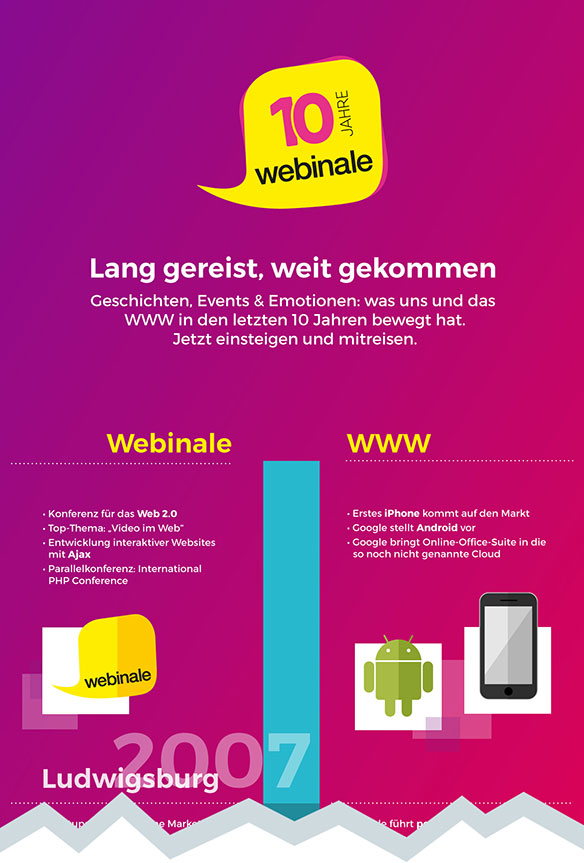
We came a looong way … Remember?
As always, after re:publica is before Webinale, which is celebrating its 10th anniversary this year. Markus is again a member of the advisory board and promises a high-level program. The Webinale goes a full week, from Monday to Friday, with workshops on the first and last days, and the traditional party on Wednesday night.
We pride ourselves on presenting at Webinale one of our major projects from the past few years. Together with Jonathan Winter, Product Owner CMS at Goethe-Institut, Markus will talk about migrating and relaunching goethe.de on a new infrastructure.
400 000 Webseiten ziehen um – ein Erlebnisbericht
Mittwoch, 31. Mai 2017 | 15:30 - 16:15 Uhr | Salon III/Dorotheensaal Das Goethe-Institut, das weltweit tätige Kulturinstitut der Bundesrepublik Deutschland, stand vor der Herausforderung, seine Webaktivitäten technologisch auf neue Beine zu stellen. Nahezu alle Komponenten vom Content-Management-System bis zur Suchmaschine kamen auf den Prüfstand und wurden erneuert. Wir sprechen von rund 300 Websites aus 92 Ländern in 64 Sprachen gepflegt von 800 Redakteuren aus aller Welt. In Summe über 400 000 statische Webseiten und eine handvoll Webapplikationen. Wir wollen etwas aus dem Nähkästchen plaudern, wie man so eine Megamigration überlebt, was wir dabei gelernt haben und wie die Landschaft heute aussieht – mit MariaDB-Clustern, dedizierten mobilen Angeboten, Akamai-CDN-Anbindung und einer Reihe hoch komplexer dynamischer Applikationen. Entwickelt mit agilen Methoden an verteilten Standorten.  Mehr information (German only) Mehr information (German only)
|
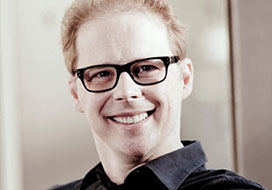
Markus Bokowsky,
Bokowsky + Laymann GmbH |
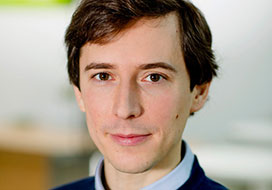
Jonathan Winter,
Goethe-Institut
|
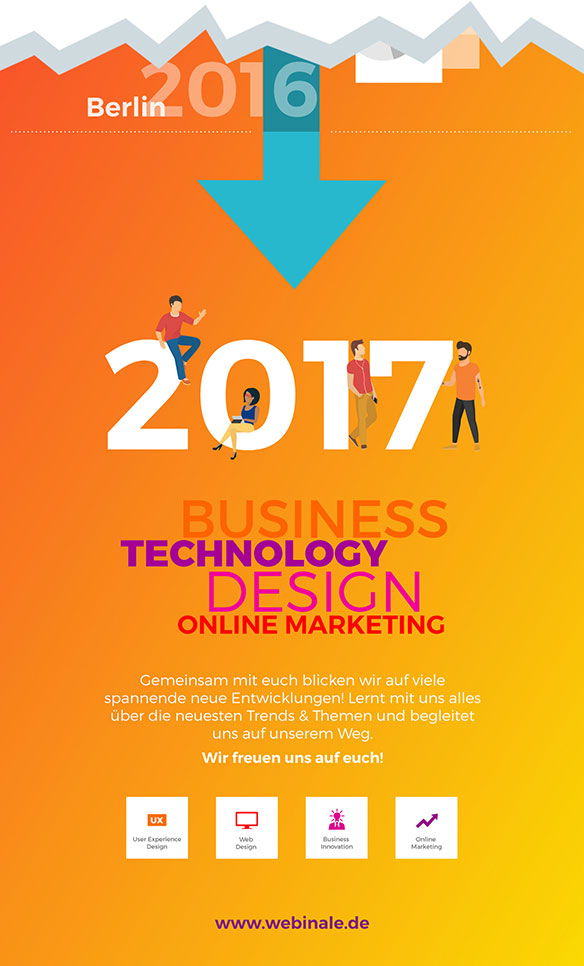
Dev<Talks/> Bucharest
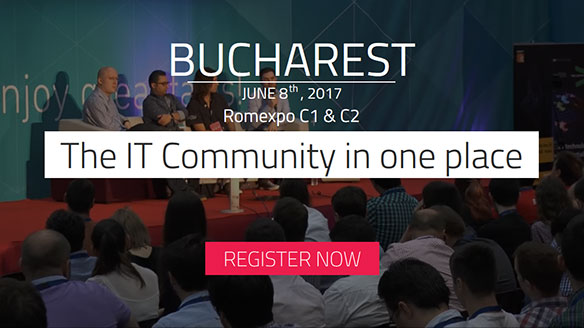
Romania is an integral part of the IT near shore community and is coming up with a steadily growing number of software developers and small IT companies in their IT strongholds Cluj and Bucharest. Markus will hold a talk at Dev<Talks/> Bucharest on June 8. Should one of you be around there or know somebody who wants to attend the conference: We are giving away five free tickets with access to all six stages of the conference. E-Mail us at info@bokowsky.de or contact us on social networks.
Google I/O
A small hint at the end: Last week Google I/O took place. But what was presented there, anyway? The more than two hours’ opening key note is not everybody’s taste and partly even tedious. We found this compilation at The Verge.
Best of Google I/O in 10 minutes.
Famous Books 2.0: An old friend in a fresh new look.
Bavarian State Librarys Famous Books app had been our very first iOS app and in terms of downloads it is still the most successful. After many years in the App Store, having undergone only minor changes and bug fixes, the app has recently been given a complete makeover.
We proudly present: Famous Books 2.0, completely refactored with fresh new design and many new features.
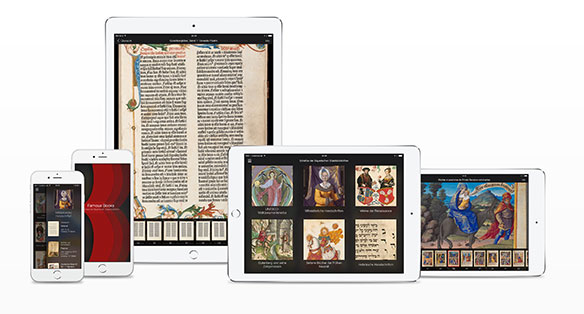
Apart from a new layout, which follows the flat design principles while retaining the historical identity of the app, the code was completely refactored. Now the layout perfectly adjusts to different screen sizes, from the small screen of an iPhone 4S up to the 12-inch display of iPad Pros. For users to have a better viewing experience of the historical treasures on high-resolution displays, all digital copies are now also available at 300dpi.
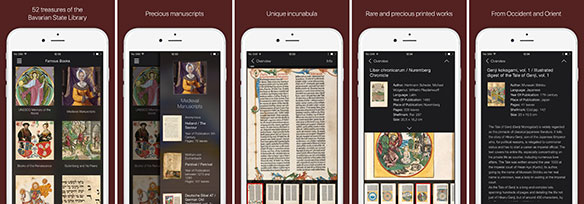
What’s new in detail:
- The app was completely refactored
- Total ARC, total 64bit, total flat design
- The presentation is adjusting dynamically to the resolution of the device thus harnessing its potential, which can be seen particularly well on iPad Pro 12“
- The digital copies are now also available at 300dpi
- The video is now 16:9 and no longer included in the app but streamed via HLS
- Titles within a category are now being listed in alphabetical order
- Some corrected bibliographic data
- The imprint and the data privacy statement were updated
- Now completely https encrypted data transmission
- Thumbnails are now being displayed in the smartphone version

And the very best: The app is now available for Android!
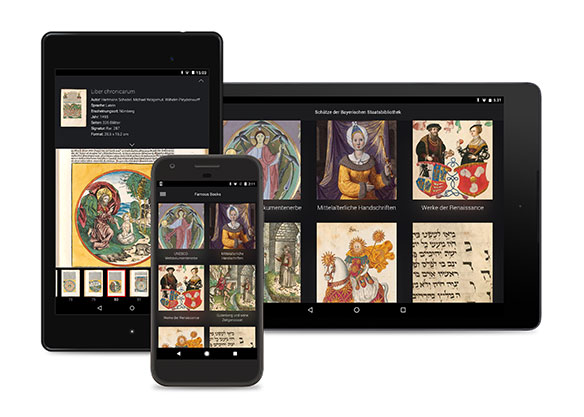
When version 1 was published, Android has not yet been important. This of course has fundamentally changed since then, so version 2.0 now also comes for Android. As always natively developed and with the same brilliant content as in the iOS version.
In the unlikely event that anybody is still not familiar with this app, here’s the description from the app store:
The app "Famous Books. Treasures of the Bavarian State Library” presents an exquisite selection of these holdings: 52 splendid manuscripts, unique incunabula and rare, precious printed works from the Occident and the Orient.

Only very rarely can the public view the physical manifestations of these treasures in exhibitions. The brilliant, complete digital copies of the exhibits - formatted for presentation on iPad and iPhone - provide a fascinating insight into the treasures held by the Bayerische Staatsbibliothek.
Users can browse through and freely zoom into the manuscripts and printed works from the first to the last page. Among the exhibits are, for example, the manuscript A of the Nibelungenlied (The Song of the Nibelungs), the eight volumes of the Ottheinrich Bible, an edition of each the Gutenberg Bible and the World Chronicle of Hartmann Schedel, the Babylonian Talmud and Wolfram von Eschenbach’s epic poem Parzival.

German Traces Latvia
From German comedian Heinz Erhard to architect Meinhard von Gerkan: Discover people and places with German roots in Latvia. Did you know that Oliver Kahn had Latvian roots? And what do you think has the central market in Riva to do with the German aviation history?
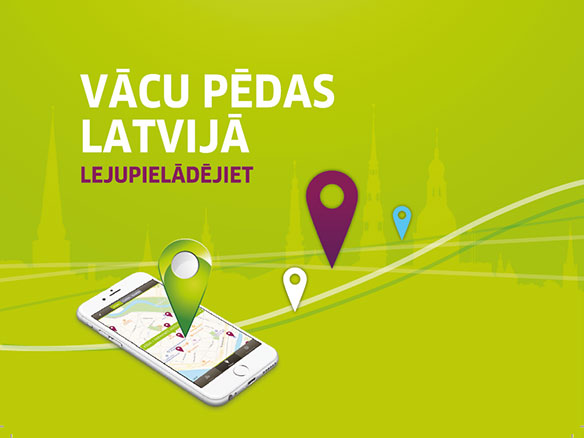
We are looking forward to the new update of the German Traces app of Goethe-Institute featuring the brand-new Latvia content package. Now available at the App Store and on Google Play.
For centuries the Latvian and German history have been closely related to each other. The historical heritage has left many traces and in the globalized era new ones are added regularly. Discover the most exciting stories and anecdotes with the „German Traces Latvia“ app of the Goethe-Institut.
Join us on a virtual tour through the former municipal theatre of Riga where Richard Wagner once lifted the baton. Listen to what star architect Meinhard von Gerkan tells about his hometown of Riga and learn who invented the recipe for one of the most popular Latvian beers. With the interactive tour guide you meet famous persons at surprising places and make interesting discoveries of German-Latvian history and contemporary culture.
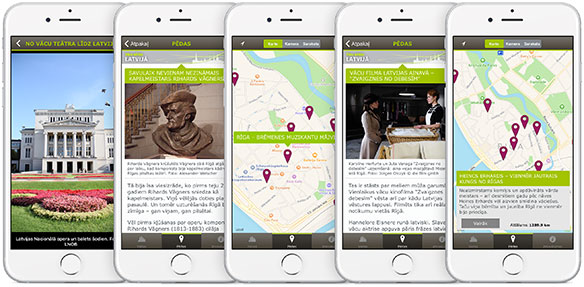
Whether at home or during a trip the app lets you browse through maps, lists and Augmented Reality views. When in Latvia, it helps to find traces in the vicinity and shows routes. From a distance, entertaining articles, audio and video footage virtually take you to the scene.
 
Retrospect MobileTech Conference Munich
As every year in March, well-placed between Mobile World Congress and CeBIT, the spring edition of MTC took place in Munich. Again, we had our own booth at the event and brought the Hololens with us. Apart from Markus’ traditional glance into the crystal ball, visitors had the chance to glimpse into the future of Augmented Reality at our booth – an offering which was well accepted.
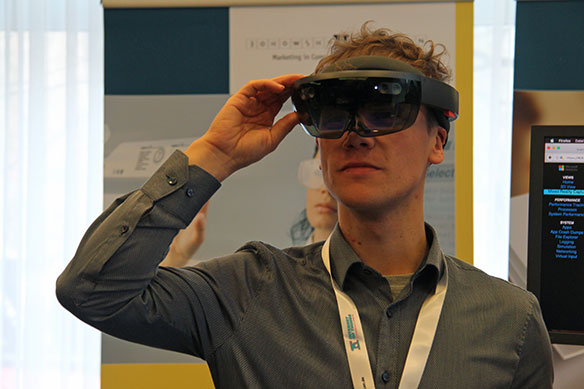
Some exciting key notes took place. Florian Schumacher started with a speech on Mobile Health and in the evening Sascha Pallenberg talked about Taiwan and how it feels working for Daimler now. On the second day Professor Schuller gave an introduction into Machine Learning and neural networks – a topic which will gain in importance in the future.
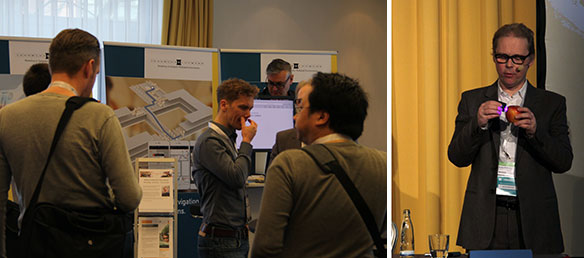
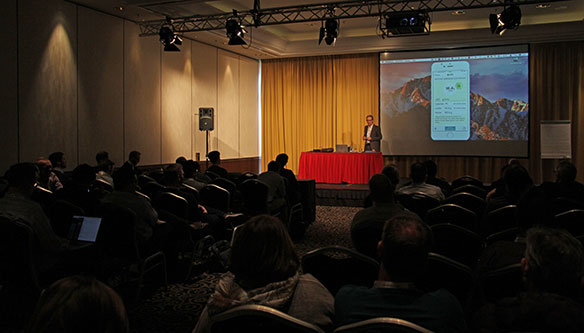
As always, Markus’ speech was well-visited – a fact we really appreciate. He talked about the presumed Mobile Trends of the next 12 months, focusing on personal digital assistants (Alexa), messengers and of course also Mobile Health..
Here are the slides (German only):
Comming up next:

What else should be on your radar? re:publica 17 iin Berlin, of course. We will cover this in the next issue of the newsletter.

And, although it is still a while to go, but already save the date: Webinale will turn 10! Again it will take place in the first week of June in Berlin. This time it comes with a great anniversary programme. Markus along with Jonathan Winter from Goethe-Institute will present the migration to the new CMS in a talk. More details on the Jubilee Webinale to follow in the next newsletter, which will be published shortly after #rp17.
|




